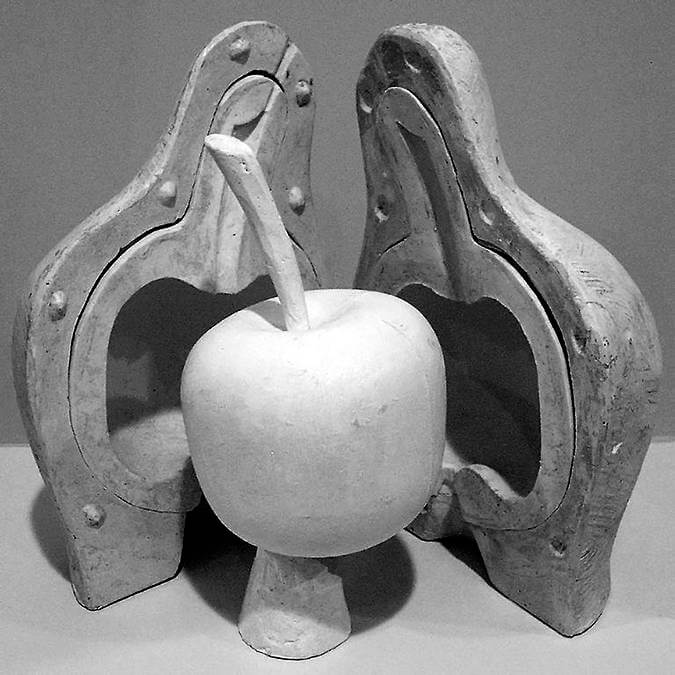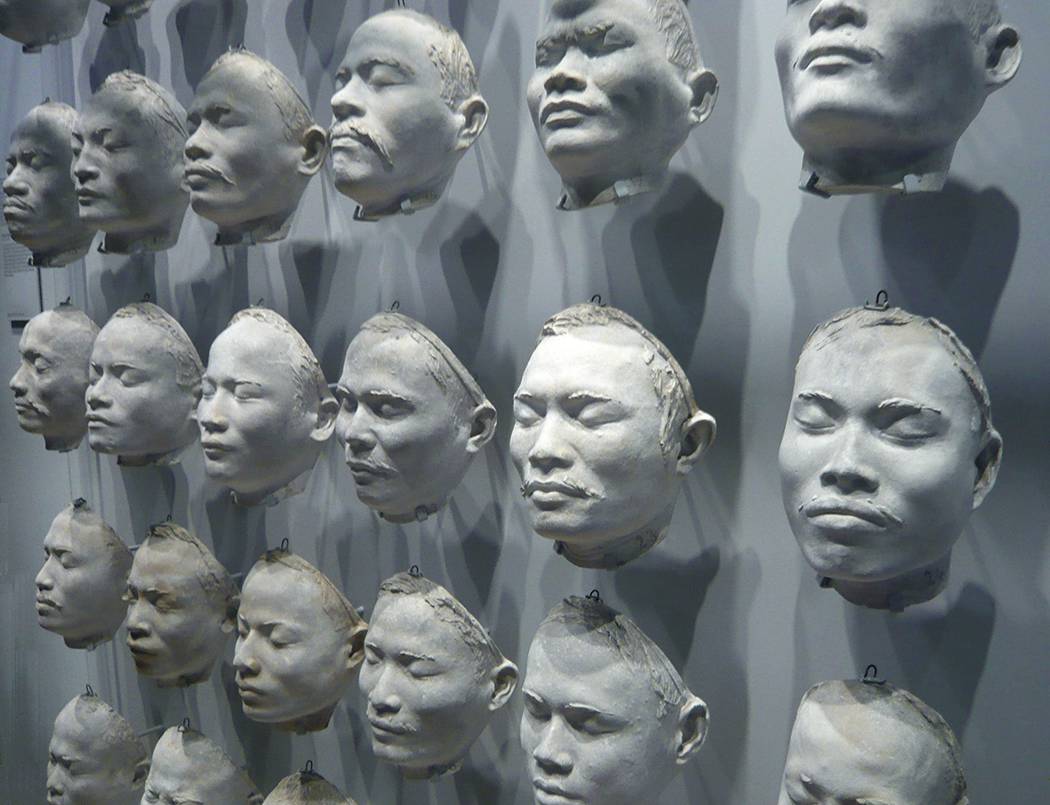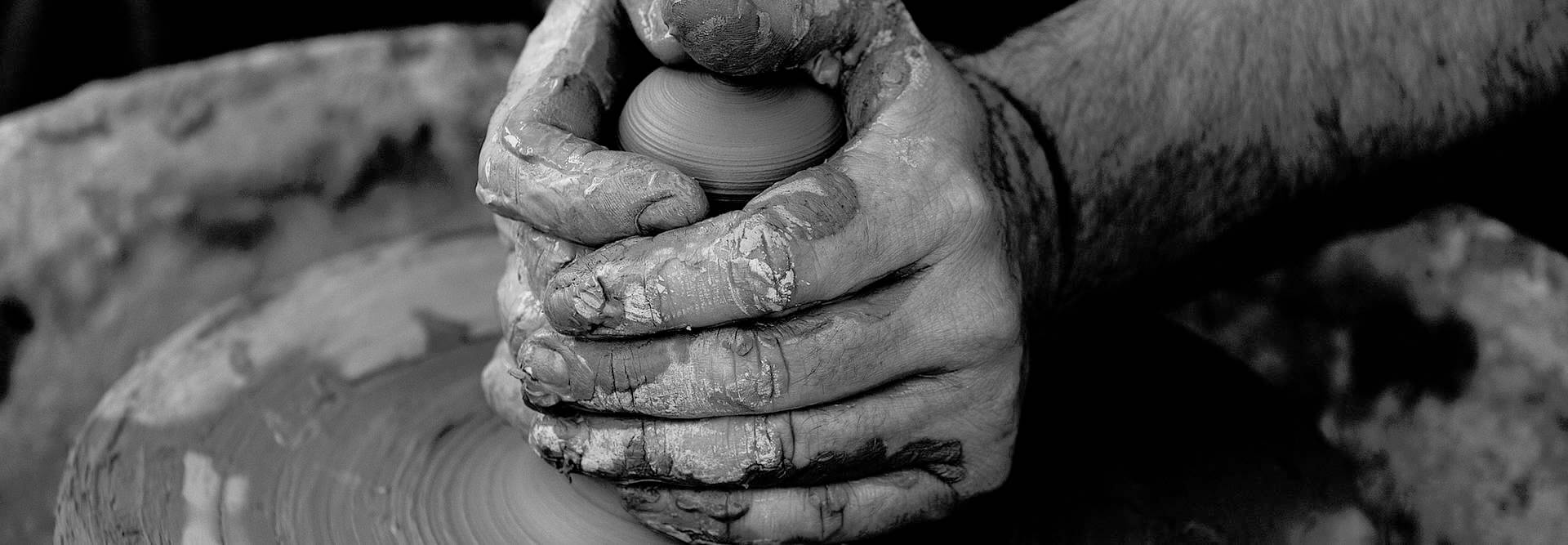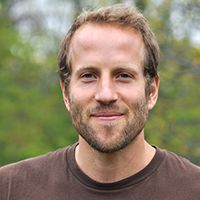Against Education
It seems like, insofar as “education” implies learning, it would be the most scintillating subject matter out there, including – as “learning” does – everything from divine revelations to flashes of insight into character to the discovery of lost artifacts to the disclosure of hard truths. And yet, mention “education” in casual conversation and you’re more likely to watch your companion’s eyes glaze over than light up. This is because, of course, we associate “education” with school. School is mostly a necessary evil, and once you’ve been through it, you don’t really want to talk about it anymore, like going to the dentist. It seems like a sorry situation for “education” to have such lowly status, but maybe it is finally appropriate; maybe learning, and all it includes, doesn’t actually belong to education after all.
The word, “education” is derived from two Latin roots: educare, to train, to mold, and educere, to draw out, to lead out. Both meanings are contained in the contemporary word, providing an etymological foundation for debates about education between conventional and progressive pedagogues. Educare implies that the educator acts upon the learner to shape them into the form desired by the educator. The tools of educare are familiar: lectures, worksheets, pneumonic devices, and standardized assessment. Educere, on the other hand, implies a process of awakening, development, and becoming. The tools for this process may include socratic dialogue, deep reading, the arts, or any course of action which strengthens the subject’s critical faculties, sharpens their senses, and expands their mental space. The common feature of educare and educere is that both imply processes conceived and guided by teachers.
Educare and educere both have their role in human society, but neither is sufficient for achieving the comprehensive development of the learner. Educare alone may stifle individual genius and agency, while educere works to preserve them – to draw them out – but an entirely different approach, not implied by the etymology, is required to achieve the implied promise of autonomy made by the phrase, “an education.” Educare and educere may neatly form the basis for the mainstream debate about education – bureaucrats wielding standardized tests and longer school days vs. reformers gushing about “student choice” – but they share a common feature which prevents them from attaining sufficiency as educational practices. The issue is that in either case – whether a learner is being, “molded,” or “lead out” – education is ultimately passive, a process which is being done to them. Philosophies of education built on either process inevitably locate the beginning of the process with, “the educator,” rather than the learner. The oldest distinctly English proverb still in use illustrates why that’s problematic.
Hwa is thet meithet hors wettrien the him self nule drinken

The heading above is Old English, and it means, “you can lead a horse to water, but you can’t make him drink.” The implications of the phrase for education are profound. Ultimately, any learner must choose to imbibe whatever lesson is being taught them or it likely won’t become meaningful and valuable to them. It’s an experience that’s nearly universal, and it’s been confirmed by researchers Edward Deci and Richard Ryan of the University of Rochester, who have developed the Self-determination theory of human motivation based on their experiments and subsequent research. “You can lead a horse to water” is the bugaboo of educators: they can offer lessons, but they cannot, under any circumstances, make their students learn, especially not deeply. The history of pedagogy is mostly a sysphisian tale about developing techniques to overcome this insurmountable obstacle, rather than a redemptive story about character development, in which a shift in perspective could skillfully undermine the obstacle.
I was required to study a language in middle school, so I signed up for Latin. I wasn’t curious about the subject, and I didn’t need to know it to accomplish any particular goal I had set. I didn’t apply myself, but I did enjoy the class, because my teacher, Mr. Breen, was both an Irishman and a funny man; listening to him crack clever, bucolic jokes in his lilting, musical voice somewhat made up for the indignity of failure. Once, I scored higher than usual on a test, and Mr. Breen was happy, but suspicious. He handed our tests back and started quizzing me on the material with slight variations on the actual test questions. I got them right, and he dug in a little deeper, asking me to extrapolate. I can’t remember the details, but it quickly became apparent that I didn’t understand the principles behind the material. Mr. Breen was baffled, and he good-humoredly shouted (in his thick Irish brogue), “Ohhhh, Gioia! You get the right answers for the wrong reasons!” He threw a whiteboard marker across the room and stood there, hands on hips. I didn’t understand the Latin, but my grade on the test stood, which was what was important to me. Mr. Breen was a good teacher. He led me to Latin, but he couldn’t make me think.
The story is a classic effect of a philosophy built on educare: the Instructional Fallacy (IF). The IF is the assumption, if instruction is provided, learning will occur. The IF is common, and we negotiate it at Hudson Valley Sudbury School frequently, despite the absence of academic requirements. Here, it usually takes the form of a student (or, more commonly, a student’s parent) requesting instruction in a conventional academic discipline such as “math.” They present with a vague goal and vague motivation, and it’s clear they’re not genuinely interested, as they haven’t done anything at all to pursue the subject. Instead, they want someone else to take care of it for them. They assume that if they get instruction in math, they’ll learn math. But most often, in these cases, the student does not learn (much) math. Even if they are able to master certain concepts and skills temporarily, they typically don’t retain them long, because there is no curiosity, continuing study, or auxiliary goal which depends on the knowledge and sustains it. It isn’t that instruction is inherently and universally defective, it’s just that it is always insufficient. Learners need to actively engage in order to learn; they have to take ownership of the process (see this study of medical students for an example). I have committed this error myself even recently, signing up for a course, assuming I would learn the material, but then failing to actively engage it, and losing most of it quickly as a result. I liked the idea of having these skills, but the actual business of them was less than arousing for me. I led myself to water, but I didn’t quite realize I wasn’t drinking it. “Drinking” in this case would begin with genuine curiosity, or at least with earnestness, which motivates the learner to pay attention, think carefully, and perform the tasks necessary to imbibe the lessons. Perhaps a childhood filled with educare gave me the wrong idea, which I’m still trying to shake off.
Explorare
How do we avoid the IF? How do we move beyond passive philosophies of education rooted in the very etymology of the word? And how might we cut the Gordian knot of hwa is thet meithet hors wettrien the him self nule drinken?
One possibility, provided by the Sudbury Model, begins by shifting from “education” to “exploration.” “Explore” comes from the Latin explorare, “investigate, search out, examine, explore.” I don’t much want to beat a dead horse (or mix metaphors), but in the case of explorare, the horse seeks out its water, utilizing directions or not, and thereby learns where water is, and how to find it again. This exploring horse is also more likely to drink than the educated horse, because the exploring horse is actually seeking water – it is thirsty, whereas the educated horse is brought to water as a passive subject – perhaps it is thirsty, perhaps not; either way, it will not be as self-reliant as the exploring horse in the future. The metaphor calls to mind a common phenomenon here at HVSS: students often learn “the basics” in the course of their explorations, such as arithmetic in the course of baking, or reading in the course of gaming. It is learning in the context of purpose, when the brain is eager and most spongelike.
What the old proverb means is that, like it or not, people have free will. There’s no need to launch into hardcore philosophical or metaphysical arguments to make this point – all that really matters here is that we experience ourselves as basically free to choose how to be and behave. This experience is the water we swim in, and any complete and honest philosophy of education must take as a goal the cultivation of people capable of acting deliberately to create their own lives. At HVSS, we believe that explorare aligns with this goal in a way that educare and educere simply cannot. The experience of free will means that ultimately, it’s up to the individual to engage, to live deliberately, and to choose what attitude to adopt in response to the circumstances they find themselves in. Focusing on educare and educere risks not only retarding the growth of our autonomy, but of obscuring its reality. If we are molded and lead by education, we are likely to forget from time to time (or always) that it is our own responsibility to live deliberately. At HVSS, we provide a setting that requires students to grasp this responsibility, which is also life’s golden opportunity.

Words are Powerful
Due to the implications of the word, “education” often creates a roadblock for people seeking to understand our school. Most people expect that we are pursuing the goals of conventional education, only adhering to different methods. The phrase, “Self-Directed Education” (SDE) leads unfortunately to the same mistaken conclusions. It sounds like, “the same stuff, but you do it yourself.” While it can include much of “the same stuff,” and usually retains elements of educare and educere, SDE also transcends the limits of “education” as we know it, cultivating the skills required to wield human freedom. “Education” limits our imaginings of what jr. adulthood can and should be, because it always directs us to think about what we might do to children, rather than what we might do for or with children. The word is imbued with ethos of the neolithic revolution, when homo sapiens shifted from living within nature to living above it, from doing alongside it to doing to it. “Education” has even served as the chosen word to describe animal husbandry, a fact which further reveals its agricultural spirit. “Explore,” on the other hand, is a word with human spirit. Explorare is an attempt to communicate the concept of SDE, a task I’d rank very highly for those of us who promote the practice, because even if only a few ever take it up in earnest, the concept alone can dissolve intellectual barriers imposed by language, immediately saturating life with possibility. Explorare and Self-Directed Education reveal that life is not a fait accompli; that it is, rather, grounded in a freedom to discover and to choose our own path.
If you enjoyed this article and feel called to give back to ASDE, here are ways you can support our work:
- Donate money
- Share our content with others! Click one of the buttons above to easily share on Twitter, Facebook, or email.
- Consider becoming a Contributor for Tipping Points
Tipping Points Magazine amplifies the diverse voices within the Self-Directed Education movement. The views expressed in our content belong solely to the author(s). The Alliance for Self-Directed Education disclaims responsibility for any interpretation or application of the information provided. Engage in dialogue by reaching out to the author(s) directly.






